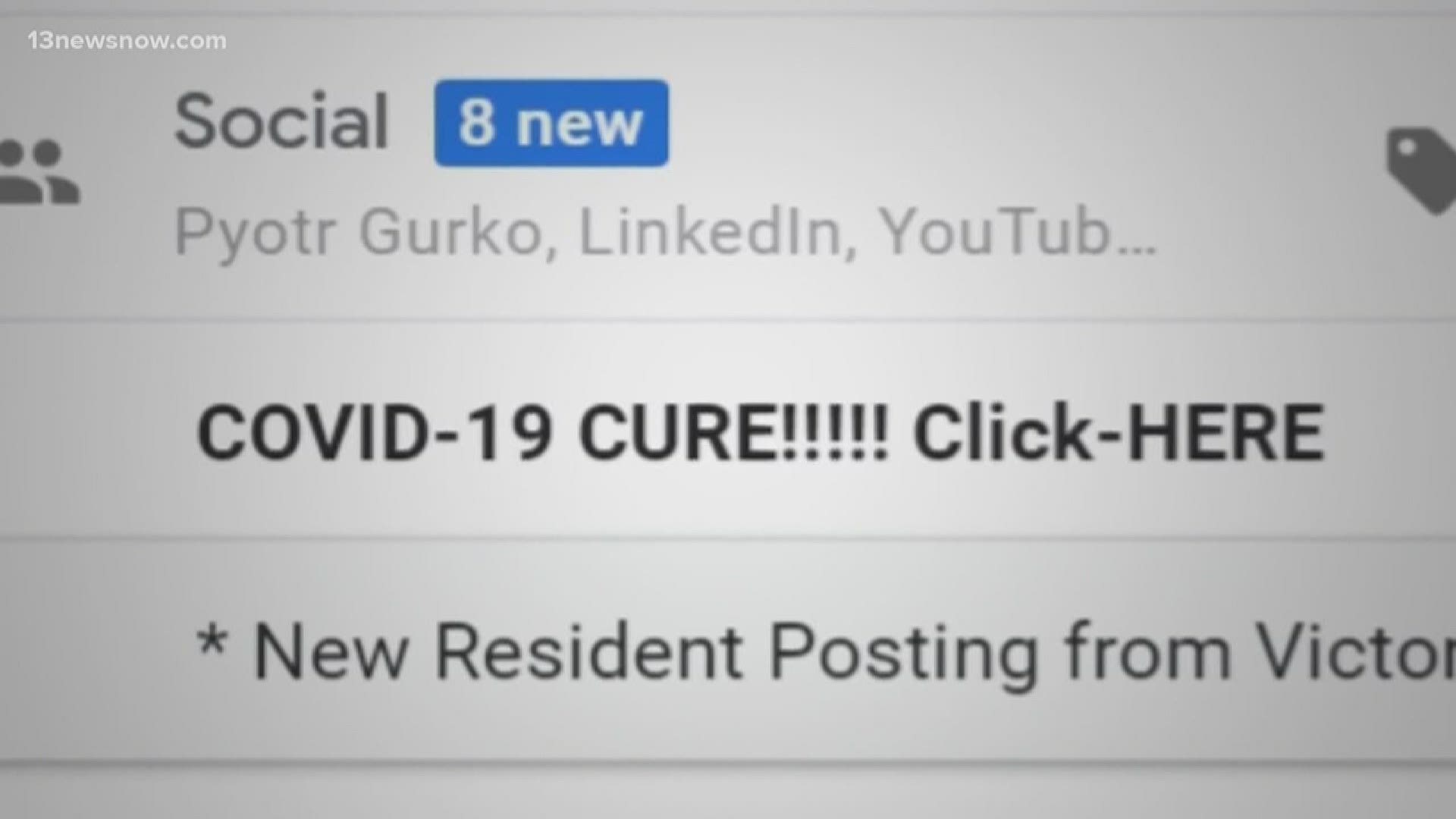VIRGINIA, USA — New warnings from the FBI reveal Cybersecurity criminals are targeting employees and people working from home during the COVID-19 pandemic.
It’s happening nationwide, and Norfolk FBI confirmed it's happening in Hampton Roads.
Fraudsters are hacking into people’s networks through emails, using the COVID-19 pandemic to make people click dangerous links.
Another dangerous new trend is called "Zoom bombing." This is when hackers sneak into unsuspecting video conference calls on Zoom.
The FBI says hackers are disrupting these conference calls and using the platform to spread pornographic images and hate messages.
Hongyi Wu, a Cybersecurity Director at Old Dominion University, knows what Cyber attackers are capable of when they hack into private networks.
“It could be very bad,” said Wu.
“The hacker would know every phone call you make, the texts you send and receive, and all the data. For instance, you might be doing a log-in to your banking account and if you enter your password, the hacker will know all of your account information. Then they go online, log into your account, and transfer funds.”
Wu said hackers are looking for software vulnerabilities and common mistakes, such as holding a Zoom meeting without a password, which gives them open access to get into the call.
Wu recommends five steps to protect yourself online:
1) Use strong passwords. Wu recommends using long passwords. You should avoid using a single password for all of your accounts and try to update your passwords regularly.
2) Keep your computer’s operating system up-to-date.
3) Avoid phishing scams. Be suspicious of any email message or phone calls that ask for personal or financial information.
4) Install anti-virus protection.
5) Back up your data. Wu said if you’re a victim of a security incident, the only way to repair a computer is to erase and re-install the system. Without backing up your data, you’ll lose your files.
These steps may seem like a lot of work, but they could protect you from a hacking nightmare.

